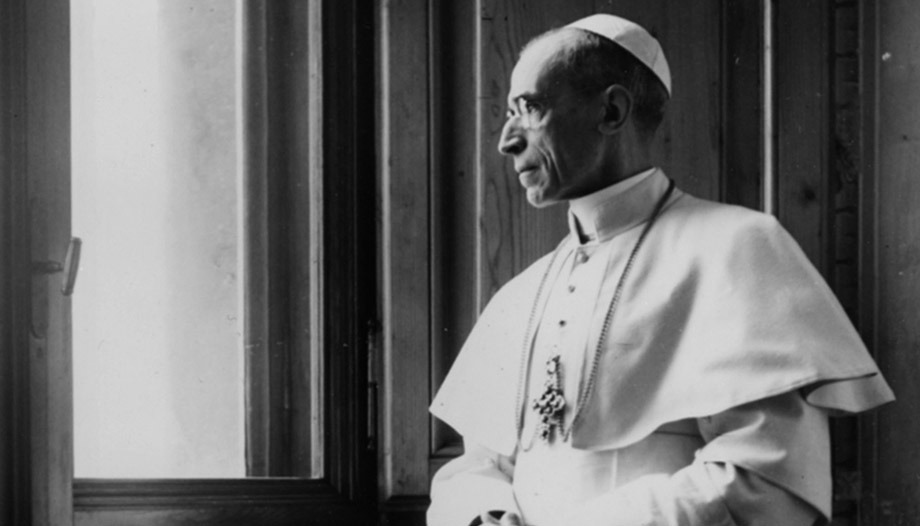The modalities of participation will not be announced until September, but the organizational machinery has already been set in motion to ensure the success of an event of considerable scope and great expectations. Especially from the historical and theological point of view.
From October 9 to 11, at the Pontifical Gregorian University, "The New Documents of the Pontificate of Pius XII and their Significance for Jewish-Christian Relations" will be held. The initiative, report the promoters, "will focus on how these archives shed light on the historical and theological controversies concerning the Pope Pius XII and the Vatican during the Holocaust period, and on Jewish-Christian relations at many levels: from non-specialists to those in positions of authority in Jewish and Catholic decision-making circles and institutions."
It will take "decades of examination and analysis to determine the true value of these archives, estimated at least 16 million pages." However, "some important discoveries are ready to be shared with the general public."
The event is organized by the Fondazione Cdec of Milan, the Center for Judaic Studies "Cardinal Bea" - Faculty of History and Cultural Heritage of the Gregorian Church, the U.S. Holocaust Memorial Museum, Yad Vashem and the Center for Catholic-Jewish Studies of Saint Leo University. Holocaust Memorial Museum, Yad Vashem and the Center for Catholic-Jewish Studies at Saint Leo University, with the support of UCEI, the Vatican Apostolic Archives, the Dicastery for Culture and Education of the Holy See, the Commission for Religious Relations with Judaism of the Dicastery for Promoting Christian Unity, the U.S. Department of State, the U.S. and Israeli Embassies at the Vatican, the John XXIII Foundation for Religious Studies, Resilience and the American Jewish Committee. The conference is sponsored by: UCEI - Union of Italian Jewish Communities; Holy See - Vatican Apostolic Archives, Dicastery for Culture and Education, Commission for Religious Relations with Judaism of the Dicastery for Promoting Christian Unity; U.S. Department of State, Office of the Special Envoy for Holocaust Issues; U.S. Embassy to the Holy See; Israeli Embassy to the Holy See; FSCIRE - John XXIII Foundation for Religious Studies; Resilience; AJC - American Jewish Committee.
As is well known, Pope Francis has made the following accessible millions of documents relating to the pontificate of Pius XII (1939-1958). Some say he is a controversial figure: on the one hand, since he is the protagonist of recognized actions to protect the victims of Nazi-Fascism, particularly in the dramatic months of the occupation of Rome; on the other hand, accused of too many "silences" in the face of the dramatic news that reached the Vatican, already in 1939, from the territories occupied by Hitler, starting with Poland. In 2020, the Vatican Apostolic Archive made available to scholars the documents of the pontificate of Pius XII. Thanks to this extraordinary research opportunity, it is now possible to carry out a more complete analysis and a more accurate interpretation of a crucial passage in the history of the 20th century.
In the context of an initiative promoted by ISCOM on December 6, 2022 on the Persecution of the Jews during the pontificate of Pius XII, the historian Johan Ickx (Archives of the Section for Relations with States of the Secretariat of State) explained Pope Francis' decision to digitize the "Jews" register: "The "Jews" register is useful to give greater impetus to historiographical research and to allow the relatives of the persecuted to reconstruct more easily the vicissitudes of their relatives who asked for help from the Holy See during the Second World War".
Vatican "Jewish" Records
"The Jews register is a bit special," Ickx observed, "because normally the registers in our historical archives of the Secretariat of State are distinguished by the name of a State, with which the Holy See has maintained or maintains normal bilateral relations in a given historical period. Under the pontificate of Pope Pacelli, around 1938, an archival register was created with this name - 'Jews' - as if, for the Holy See, it were a specific nation. The register remained open until '46 and then, with the end of World War II, it was closed."
Already in his book "Pius XII and the Jews" of 2021, Ickx demonstrated the willingness of the Holy See to help those persecuted by Nazi-fascism. But then also its inability many times to do so, because many times the Holy See was hindered: "The Nazis were present in half of Europe at that time and prevented any initiative to help. But the Fascist regime in Italy also carried out persecutions and therefore often hindered the Vatican's rescue efforts. Many times even the national governments did not cooperate."
One of the most interesting documents in the book is a letter from Cardinal Gasparri, dated February 9, 1916, in which he responds to a request from the American Jewish Committee of New York.
A letter, according to Ickx, inspired precisely by Eugenio Pacelli, then at the Secretariat of State: "In that case, the American Jews were asking the Vatican for a position of Pope Benedict XV on the racial persecution that had already begun during the First World War. Secretary of State Gasparri responded with this text, explicitly authorizing its publication. The newspapers of the American Jewish communities echoed it, describing it with satisfaction as an authentic "encyclical". In the text, Jews are literally defined as "brothers" and it is affirmed that their rights must be protected like those of "all peoples". It is the first document in the history of the Catholic Church and the Holy See to express this principle. "These are the words that - according to Ickx - we find in the document Nostra Aetate of the Second Vatican Council, published in 1965. They are precisely the principles that Pius XII applied for decades during his pontificate in the face of the great challenge of Nazism and then Communism."








